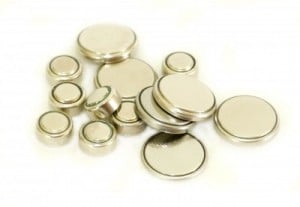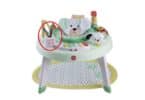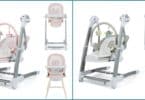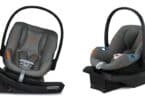
These small, coin-sized cell batteries can be found in products in nearly every home in America. From the musical greeting card sitting on the table, to the remote control next to the TV, “button batteries” as they are commonly referred to, are in thousands of products used in and around the home. Young children and senior adults are unintentionally swallowing the cell batteries and in some cases, the consequences are immediate and devastating.
A recent study conducted by Dr. Toby Litovitz of the National Capital Poison Center found that cell battery-related incidents resulting in severe injury and fatality have increased sevenfold since 1985. The majority of reported incidents involve 20 mm diameter, or larger, 3 volt batteries. Occasionally, a swallowed battery will pass through the intestine. Most often, however, batteries that become lodged in the throat or intestine can generate and release hydroxide, resulting in dangerous chemical burns.
Incidents most often involve children younger than four years old and senior adults. In the majority of incidents, children gain access to batteries directly from games, toys, calculators, remote controls and other items commonly left within a child’s reach. Senior adults have swallowed button batteries used in hearing aids after mistaking them for pills.
Parents often are unaware that a child has swallowed the button battery, which makes it difficult to diagnose the problem. In fact, in the recent study, more than 60 percent of reported incidents initially were misdiagnosed. Symptoms resemble ailments common in children, such as an upset stomach and fever, and in some incidents, there are no symptoms at all.
“These incidents are preventable and CPSC is working to get ahead of this emerging hazard quickly,” said CPSC Chairman Inez Tenenbaum. “Our consumer awareness efforts and outreach to the electronics industry are under way.”
CPSC has reached out to the electronics industry and battery manufacturers, urging them to develop warnings and industry standards to address this issue.
CPSC recommends the following steps to prevent unintentional battery ingestion:
- Discard button batteries carefully.
- Do not allow children to play with button batteries, and keep button batteries out of your child’s reach.
- Caution hearing aid users to keep hearing aids and batteries out of the reach of children.
- Never put button batteries in your mouth for any reason as they are easily swallowed accidentally.
- Always check medications before ingesting them. Adults have swallowed button batteries mistaken for pills or tablets.
- Keep remotes and other electronics out of your child’s reach if the battery compartments do not have a screw to secure them. Use tape to help secure the battery compartment.
- If a button battery is ingested, immediately seek medical attention. The National Battery Ingestion Hotline is available anytime at (202) 625-3333 (call collect if necessary), or call your poison center at (800) 222-1222.
Related Articles:
- Second Infant Death Prompts Re-Announcement of Delta Enterprise “Safety Peg” Drop-Side Crib Recall to Repair
- RECALL: 28,000 Rattles by Rhino Toys Due to Choking Hazard
- RECALL: Manhattan Group ~ Parents Wooden Activity Toys Due to Choking Hazard
- RECALL: Baby Jogger LLC Recalls 2,000 Baby Jogger Jump Seats Due to Fall Hazard






